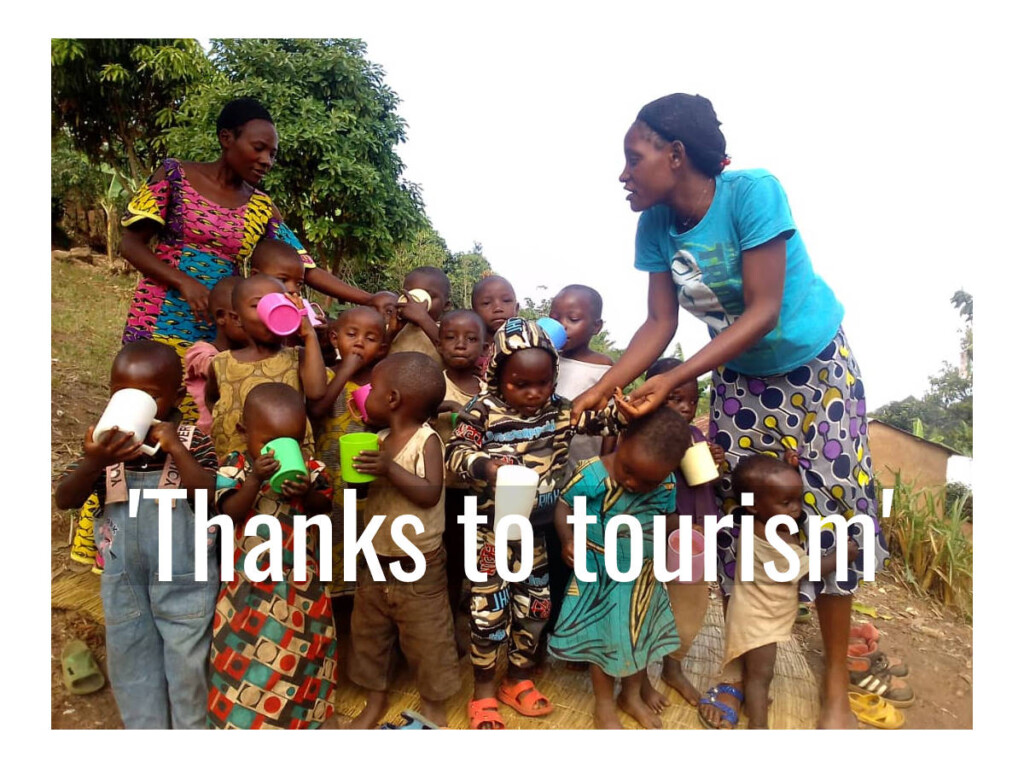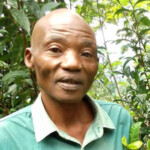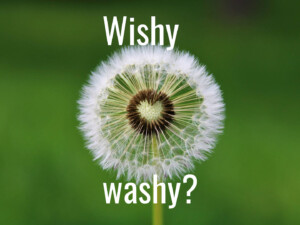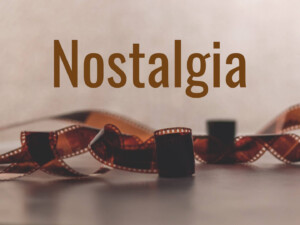“GT” Insight Bites: On enrichment, repatriation, the double-edged blade, and war

Write no more than 300 words on a travel & tourism topic that is important to you.
This is an open invitation to travel & tourism stakeholders to contribute a “GT” Insight Bite.
Simply contact “GT”.
Unlike other “Good Tourism” Insight Bites that have deadlines and are based on specific questions or hypotheticals, this invitation is ongoing and wide open in scope.
I’ll publish as and when I have a few or a couple; sometimes even individually if it’s timely, so don’t be shy in pitching your “GT” Insight Bite. If you have more to say, consider a full “GT” Insight (600 – 1,200 words).
“GT” doesn’t judge. “GT” publishes.
Thanks to everyone who shared. Their responses appear in the order received.
Bites menu
‘Tourism has enriched my life’
Elysee Igiraneza, Kigali city tour guide, Rwanda
I was born and raised in Rwanda.

My journey in tourism began when I was 20 years old, with a passion for exploration and a desire to share the world’s wonders. As a local guide, I found immense joy in connecting travellers to unique experiences and cultures.
Tourism has enriched my life, providing opportunities for personal growth and contributing to my family’s well-being. It has also been a catalyst for positive change in my community and a source of pride for my country.
Tourism to me is more than just a profession; it’s a gateway to cultural exchange, connection, and understanding. It’s about creating unforgettable experiences, bridging divides, and showcasing the beauty of our world.
With your support, I aim to continue sharing these moments, promoting global harmony, and contributing to the growth of our community through sustainable and enriching travel adventures.
Looking ahead, I aspire to continue promoting sustainable tourism, fostering cultural understanding, and creating memorable adventures for all.
I want to go the extra mile in my career in tourism. I’m thinking of opening a tour company and also I’m thinking of going for further education in tourism.
Thanks to tourism, I started a nursery school
Rick Masumbuko, Gisakura tea guide, Rwanda
My name is Rick Masumbuko, born in Bukere village, Kivu province, Congo DRC. I’m 55 years of age.

When I was a young boy I liked to go into the forest to see wildlife. I also liked to go to Bukavu town to meet and talk to tourists.
I moved from DRC in 1980 and stayed in Kibuye, Western Province, Rwanda where I met people from Switzerland who taught me forestry practices. From Kibuye they took me to Nyungwe forest in southwest Rwanda.
I started in tourism in Nyungwe from 1986 as a guide leading treks from the Uwinka Overlook. It is here I started learning English. (I also speak French and Swahili.)
I moved to the nearby Gisakura village in 2003 and worked in hotels as a waiter.
In 2010 I started learning community based tourism and I worked several years in the Gisakura tea plantation taking tourists on hikes.
I continue to be a tea guide in Gisakura, showing visitors how tea is grown, harvested, and prepared. I also take tourists on village walks, where they can meet locals and dance with them.
Thanks to tourism and the money I am able to save and send back to Congo DRC, I have started a nursery school on Idjwi Island in Lake Kivu. [See featured image (top of post)]
I would like to develop my skills in tourism. I also dream of pursuing my passion for wildlife. The main challenges I face include transportation that would allow me to move to different areas to take photos of fauna and flora in my spare time; also a good camera, computer, and smartphone would help me research and create a documentary to teach people about nature conservation.
Tourism is ‘a double-edged sword’
Anshu Tejuja, Managing Director, Ashoka Dream Holidays, India
Tourism is often touted as a win-win. Tourists get new experiences, businesses get new customers, and local communities get a boost in their economy.

But as a resident and professional in Mumbai, India, I’ve witnessed firsthand that this story is nuanced.
Tourism, while a significant driver of economic growth, also comes with its share of challenges, especially for communities.
The double-edged sword: Mumbai welcomes millions of visitors each year. The economic boost is needed and helps improve the standard of living for many. But it also leads to price surges, including for property, and strains local resources, disproportionately affecting those who aren’t directly benefiting.
Authenticity vs. commercialisation: Mumbai’s rich cultural tapestry is one of its attractions. However, this can sometimes mean that cultural traditions, arts, and crafts are altered to cater to foreign tastes thereby losing their authenticity.
An unsustainable toll: High tourist footfall puts immense pressure on environmental resources. Waste management becomes more difficult, and natural sites may get damaged. In Mumbai, beaches and natural parks are particularly vulnerable.
A sustainable way forward: So, what’s the solution? For one, sustainable tourism needs to be more than a buzzword. Its practices need to be implemented in earnest; from promoting the off season to implementing strict waste management protocols.
The missing piece: A truly sustainable model cannot function without the community’s engagement and say in how tourism is developed and managed. Community tourism initiatives, where locals can share their culture, crafts, and cuisine in a meaningful way, can provide more authentic experiences for tourists while generating direct incomes for community members.
Tourism is indeed a double-edged sword, bringing economic benefits and the potential to cause social, cultural, and environmental harm.
To me it is clear that we must tread carefully ahead with the intention to make tourism more sustainable and inclusive.
‘When the war stops …’
David Nenwa, driver guide, Red Rocks Rwanda
The Virunga National Park in DRC Congo has closed all its tourism activities due to war. Tourist safety is our priority.

Before the Park closed we would send tourists for gorilla trekking following set packages. I was a guide for these.
One of my favourite packages was called Mikeno Mist. For this we would depart Goma at 14h00, drive for about one hour to reach Kibumba camp where we stayed overnight. The next morning we trekked to see the gorillas then stayed another night at Kibumba. On day 3, we drove from Kibumba to Kibati, thé starting point for the Nyiragongo volcano hike. We walked for about seven hours to reach the summit and stayed overnight in cabins. On the last day, our group would descend Nyiragongo and return to Goma.
Now I am in Rwanda working with Red Rocks. I have known and worked with Greg Bakunzi for 12 years.
I am a driver guide here too, taking visitors trekking in the Virunga Mountains on the Rwanda side; Volcanoes National Park. I have also guided for Amani Safaris, a branch of Red Rocks, in Uganda and other places in Africa.
My family is still in Congo. They are safe as the front line is 20 km from where we live in Goma city, DRC. I am able to assist them whenever I return home from Rwanda.
Hopefully tourism will resume as soon as the war stops. Local communities in DRC benefited from tourism in the Virunga Mountains. Some 30% of tourism revenues were allocated to them. The Virunga built three hydroelectric plants, five elementary schools, and supplied running water to Kibumba and Rugari villages.
When the war stops, we hope to launch game drives in the savannah area where elephants, buffaloes, hippos, lions, and antelopes roam.
What do you think?
In a comment below share your own thoughts about what’s important in travel & tourism. (After signing in you will need to refresh the page to see the comments section.)
Or write a “GT” Insight. The “Good Tourism” Blog welcomes diversity of opinion and perspective about travel & tourism, because travel & tourism is everyone’s business.
“GT” is where free thought travels.
Featured image (top of post)
“Thanks to tourism and the money I am able to save and send back to Congo DRC, I have started a nursery school on Idjwi Island in Lake Kivu,” Rick Masumbuko, who supplied this image, said. Mr Masumbuko is a Congolese guide working in Rwanda.
Previous “GT” Insight Bites
- On tourism technology, progress, and local benefit-sharing
- Hey, travel & tourism, are you ‘neocolonialist’?
- Who’s the new boss? Asia Pacific tourism industry association seeks leader
- ‘The hospitality industry offers a great career.’ Really?
- Cruise ships: Blessing or blight?
- Tourist vs traveller: What’s the difference?
- The heads of finance, operations, and PR walk into their boss’s office …
- Yes, Tourism Minister
- What are tourism’s biggest challenges & threats over the next five years?
- ‘Tourism is built on the backbone of white supremacy’. What do you think?
- Really, what’s the difference? ‘Sustainable tourism’ vs ‘regenerative tourism’
- Want a career in tourism? Important things you should know
- Diverse perspectives on travel & tourism and a fairer world
- Diverse perspectives on economic degrowth and tourism
- Diverse perspectives on visitor dispersion





